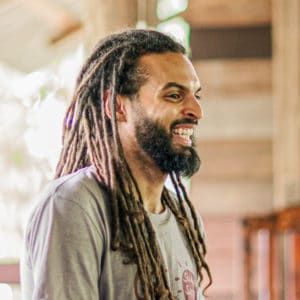Hi everybody! Thanks for stopping by today.
Okay, let’s talk about the ridiculous title to this blog – WHAT IS YOGA? There are sooooo many definitions, perspectives, and opinions about that. I view one’s answer to this question as a kind of Rorschach test – how you answer reveals more about your own psyche than it does about yoga itself. I’m more interested in the question itself, and through the process of asking, coming to an answer that makes sense for us. Ready to dive in? Here we go!
As a jumping off point, I asked the question so I’ll give an answer. How would I define yoga? When I’m absolutely pressed for an answer, I resonate with a classical translation of the ancient sage Patanjali’s second sutra. Yoga is the cessation of the fluctuations of the mind, or “Yogas chitta vṛtti nirodhaḥ.” I’m left brain dominant, rather traditional, and I like clean minimalism, so this works for me.
There are lots of other useful and correct definitions to the question “What is yoga?” too. Yoga can be described as a sequence of physical poses, it can mean union, and it can be the practice and/or the end goal of a comprehensive system of self-realisation, among many, many other possibilities.
I think pushing for one consensus definition is a futile effort at this point. In an increasingly humanistic world, everyone who rolls out a yoga mat values their own personal relationship to their practice, including individual goals and intentions. That brings us to an interesting place in which there is no governing body (thank goodness) to definitively say what yoga is and isn’t. That gives people the freedom to make yoga whatever it needs to be for them to fit their individual needs. On the other end of the spectrum are people who take exception to what bears the name of yoga today. To them, yoga has a strict definition and those who don’t follow the rules are disrespecting the tradition. Wine and Cannabis Hip-Hop Goat Yoga? Blasphemy! Or is it?? (I know at least a couple of you are considering that, so to save you a Google search, you can only pick 2 of those at a time. Sorry.)
I’m not going to even begin to wade into the deep waters of cultural appropriation surrounding the question “What is yoga?” because that is an entire book’s worth of content written by someone far better researched than me. I will say this though, I find it vital to study the history of yoga at least a little bit to know where it comes from. That’s why I take my cues from well established yoga scholars to get a deeper perspective of the history of yoga philosophy. For a deeper dive, here’s a great podcast by the wonderful scholar Andrea Jain on the Yogaland Podcast.
The beautiful legacy of yoga is that it is still alive and practiced regularly all over the world. It has adapted to meet the needs of people throughout millennia, and that adaptability is what has allowed it to survive. If there was one static and unchanging definition and application of yoga, chances are it would have died out. However, there is something in this practice that simply works, no matter why you come to your mat. If someone simply needs a place to move so they feel a little better in their body, great! If someone has aspirations of enlightenment, great! Everyone is welcome in my classes and at Suan Sati, regardless of your motivations to practice. I hope that you feel that encouragement from every teacher you meet, regardless of their definition of yoga. And if you happen to meet someone who pushes a fundamentalist definition of “this is yoga, and everything else is wrong”, do yourself a favor and RUN, don’t walk, in the opposite direction as fast as you can.
Life is hard enough as it is without yoga gatekeepers denying access to a powerful tool that can benefit us on physical, mental, emotional, and spiritual levels. I say do what makes you feel whole, balanced, and integrated, and do it with gusto. Practicing with your whole heart is as fitting a tribute as any to this practice that defies definition.

